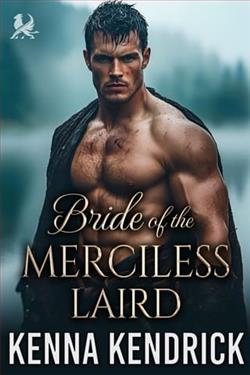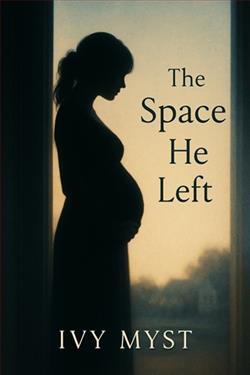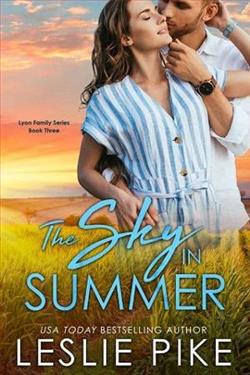Page 55 of Bite of the Gargoyle
The body had been perfectly preserved in the ice.
What little there was of the winter sun was low on the horizon, shining at an angle, casting long shadows but giving little or no heat. It was noon, and the sun had reached its zenith. It would be gone in an hour or so.
Whoever this was, he’d spent the harsh winter buried in snow and ice. Same with the knife sticking out of his chest. The body was that of a male Native American. He was Inuit, no doubt. He was maybe thirty-one, thirty-two. He was also completely naked, although his legs were still partly encased in ice.
One of my deputies, Miguel, who was wearing latex gloves, squatted next to the dead man, and looked carefully at the knife protruding from his chest.
“Strange,” he said.
A bitterly cold wind swept over the freshly-thawed lake. I ignored the wind, or tried to. I might have hunkered down into my police-issue jacket a bit more, but that was it, and no one saw me do it. There’s an unwritten rule in Alaska, at least, out in these parts; you ignored the cold, and you sure as hell didn’t make a fuss over it. Even if you were a woman, and especially if you were the chief of police.
I squatted down next to him and studied the knife.
Miguel nodded towards it. “It’s not a normal knife.”
Antler handle, sloppy glue job.
The afternoon light reflected dully off the metal shaft. I suspected the knife had been plunged all the way into the man’s chest; however, due to the ravages of time and the brutal winter, his skin had retreated some, revealing more of the unusual blade.
“It’s homemade,” I said as I continued to study it. “And it’s silver.”
Miguel nodded.
We both stood but continued staring down at the body, which was propped up against a tree in a sitting position, as if waiting for teatime.
“Ijiraq,” he said finally, using the Inuit name for “shape-shifter”—a name I was all too familiar with.
I knew this was coming. After all, in these parts—theseremoteparts—the legend of the shifter was prevalent. For three months now, I’d been the chief of police of Hope, Alaska, and during that time, I’d heard the word whispered dozens of times. Some weren’t whisperings. Those who were courageous enough spoke freely of the creatures that many believed stalked their woods, raided their homes, and stole their livestock and, in one case, their children.
I’d heard the rumors, too, all the way down in Anchorage, where I’d worked homicide for eight years. We’d all heard the stories that trickled out of Hope. And we’d all laughed at them, too. After all, Anchorage was the last outpost of civilization. It was where the Starbucks stopped, and where the real bucks started. Where hipsters’ beards weren’t just ironic, but necessary. Anchorage was the last place where people were born and raised and educated and actually became something.
But out here, in the wild, beyond our imaginary fortress walls, anything was possible. Or so some claimed. Out here were thousands of acres of untouched wilderness. Out here were beasts of all shapes and sizes. Polar bears, moose and brown bears in unheard-of sizes. Some even claimed the last vestiges of the Ice Age were out here, too, but these stories seemed less probable, though no less prevalent. It wasn’t that unusual to hear stories from hunters returning from the wilderness who’d claimed to see wooly mammoths and mastodons. (I never knew the difference between the two, truth be known.) There were also the Inuit trackers who said they’d seen saber-toothed tigers and dire wolves and lived to tell about it.
Yes, we’d heard all the rumors and legends. We’d listened to the stories from behind our lattes and within our heated homes. We’d heard the stories and we’d laughed them off. We had to. We were civilized, after all.
But there were some stories that weren’t quite so easy to dismiss. And those stories revolved around wild men and women who lived off the grid. Way, way, way off the grid. People who governed themselves and lived outside time and space and law, people who were nearly impossible to reach. And if you did reach them, you were in for the fight of your life.
Now, the wind somehow found its way inside my clothing, but I ignored it. If someone looked closely enough, they might have seen my shoulders hunch a little as I attempted to ward away the cold, but they wouldn’t see anything more.
I was the new girl. And not just a girl, either. I was the chief of police. The boss. And the Neanderthals here didn’t know what to make of me. Six machismo officers, all under my command. The small town of Hope had been looking for a new police chief, and I’d been looking for a way out of Anchorage. It was a match made in heaven. At least on paper. In reality, the guys didn’t like me, and some might have even hated me. After all, who was I, an outsider, to come in and tell them how to run their department, their town, their lives? Hell, I was a city slicker, an outsider, and I was a woman, too. All of which added up to animosity.
All of which I ignored.
I was convinced that most of them thought I’d be gone by now. Most had it wrong. It was going to take a lot more than butt-hurt cops to scare me away.
“Have you ever seen anything like this, Miguel?” I asked.
He moved closer to the blade, and was now inspecting it from just inches away. There was no blood, but I wasn’t surprised. Undoubtedly, any blood had washed away with the snow melt. At present, the temperature was a little above freezing. Warm enough to melt snow but not warm enough, apparently, to cause decomposition. The dead man before me could have died hours ago, minutes ago. Hell, he looked like he could be alive even now.
“Yes, Chief,” he said. “I have.”
I waited.
Miguel had been the first to call me chief. A few of the others had followed suit, but the name hadn’t stuck. I hadn’t earned it yet, I suspected. At least in their eyes. My years in homicide had done nothing to impress them. Then again, I wasn’t here to impress anyone. I was here to uphold the law. At least, that’s what I’d said during my interview with the mayor. What I hadn’t said was that I was here to start over, to find myself, to heal myself. Mostly, I was here to forget.
Miguel continued, “It was when I was a boy. I found a man on a boulder, facing the sky. A spear in his chest.”
“A spear?”















